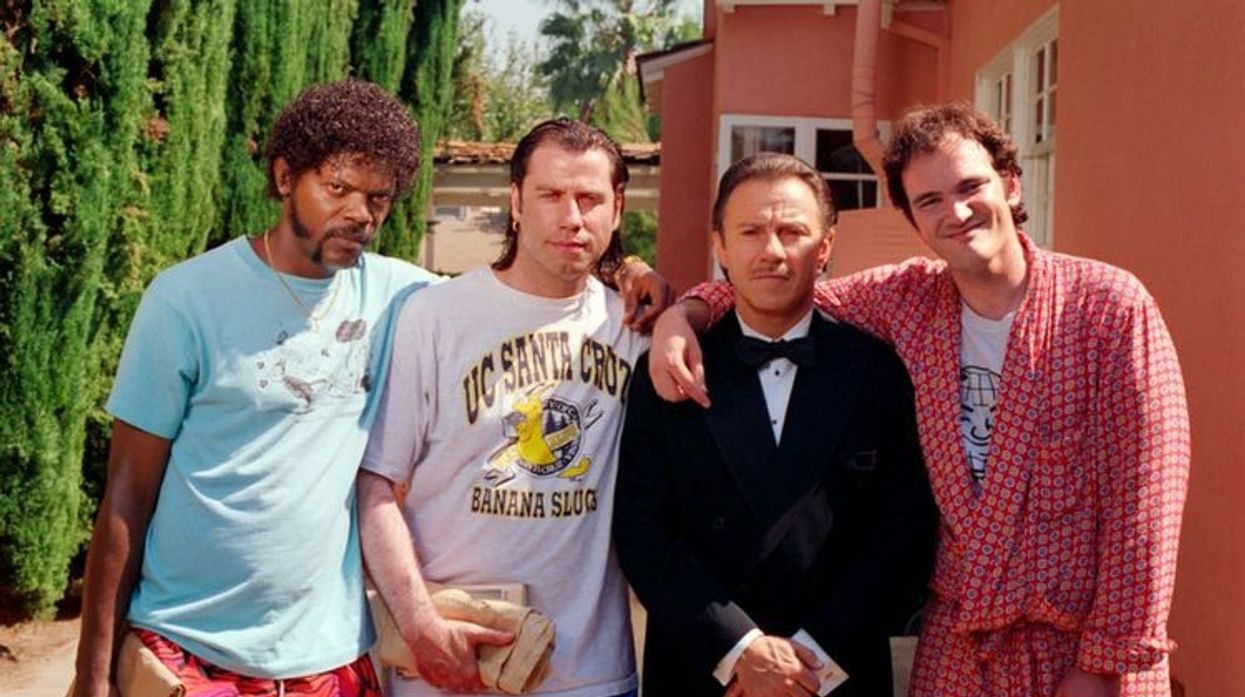Watch Tarantino Wax Philosophic on Brian De Palma
Who's your favorite filmmaker who you nerd out on? For Quentin Tarantino, it's Brian De Palma.

For as long as I can remember, I have always looked up to filmmakers. They're the people who make dreams come alive. They infuse us with storytelling and wonder and truth. The thing I love most is when filmmakers talk this way about other filmmakers.
There's a certain fluidity and heroism in lifting up those around you, making sure everyone knows their names.
Tarantino is especially good at that with his favorites. He writes books like Cinema Speculation and does interviews like the one below. It's a compilation of him talking about how much filmmaker Brian De Palma means to him. They talk about his pastiche and originality, his voice, and his craft.
Check out this video from Vanilla Skynet, and let's talk after the jump.
Watch Tarantino Wax Philosophic on Brian De Palma
These engaging 27 minutes really pull apart an appreciation for a director. I actually think you can see a lot of De Palma in Tarantino's work, especially with the violence. He's always willing to take it one step further into the macabre.
Another thing I think Tarantino highlights that few people talk about is De Palma's social satire. We mention Bonfire of the Vanities, but really every De Palma movie has something to say about society.
What sets this interview apart, I think, is that Tarantino is gushing about De Palma, but in his book, Cinema Speculation, which comes out close to 30 years after a lot of these interviews, is that Tarantino is a little more hardline on De Palma.
It's easy to see Tarantino still loves De Palma. The book has a chapter dedicated to Sisters and another dedicated to a "what if" scenario talking about if he hadn't passed Taxi Driver to Scorsese and stayed on to direct it himself.
He also lists his favorite De Palma movies, which include Dressed to Kill, Carrie, Hi Mom, Blow Out, and Scarface.
These clips are all about De Palma's art and point of view. He's commercial but also willing to push back on expectations. He's exploring art in very complicated ways, but also trying to continue to work. I think De Palma may have always understood he needed to be commercial to get Hollywood budgets, but always brought a piece of himself to the screen. It's what makes him one of the most interesting directors to talk about.
And I think what draws Tarantino to him.
Nevertheless, this is a really intelligent discussion of a director, and I think unlocks a lot of directing lessons for the audience.
What was your favorite part? Let us know in the comments.











